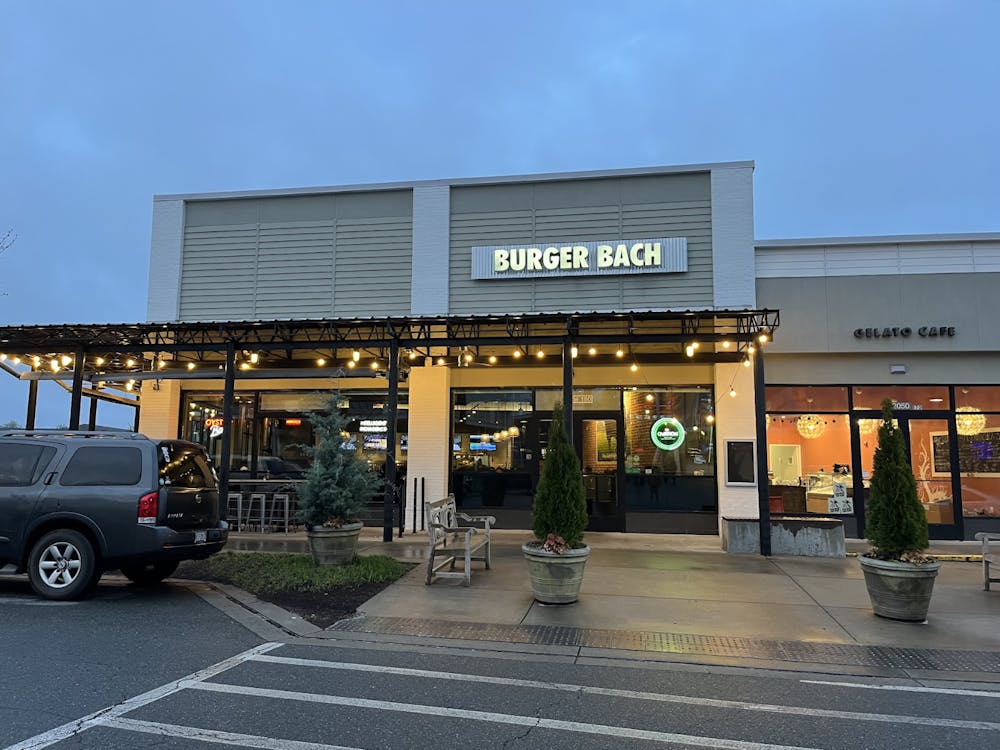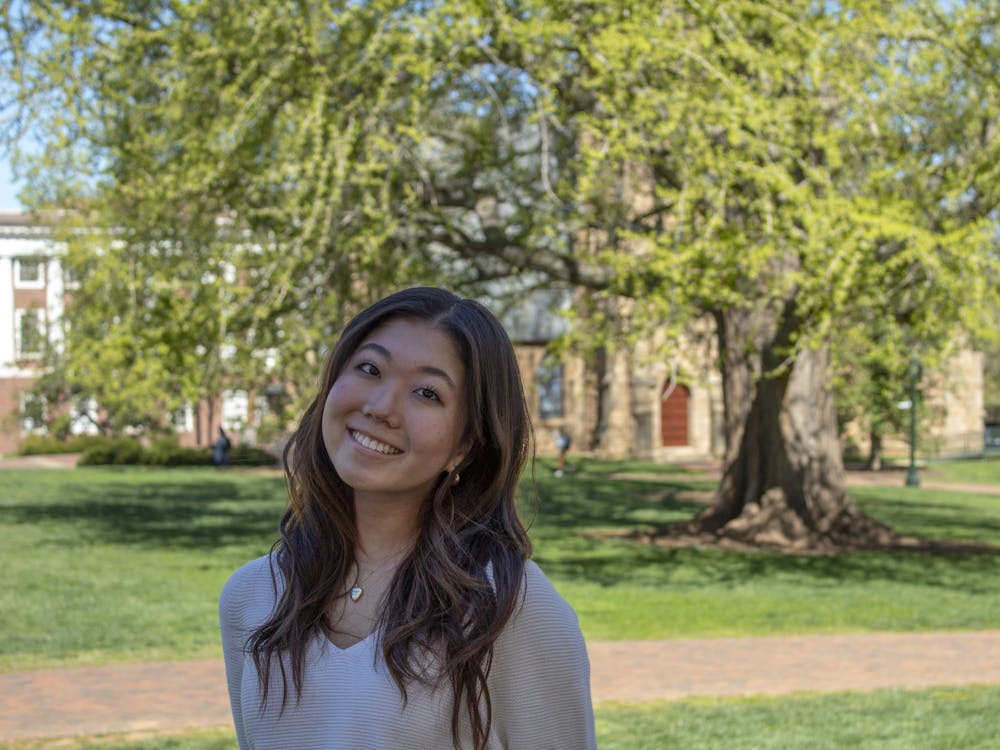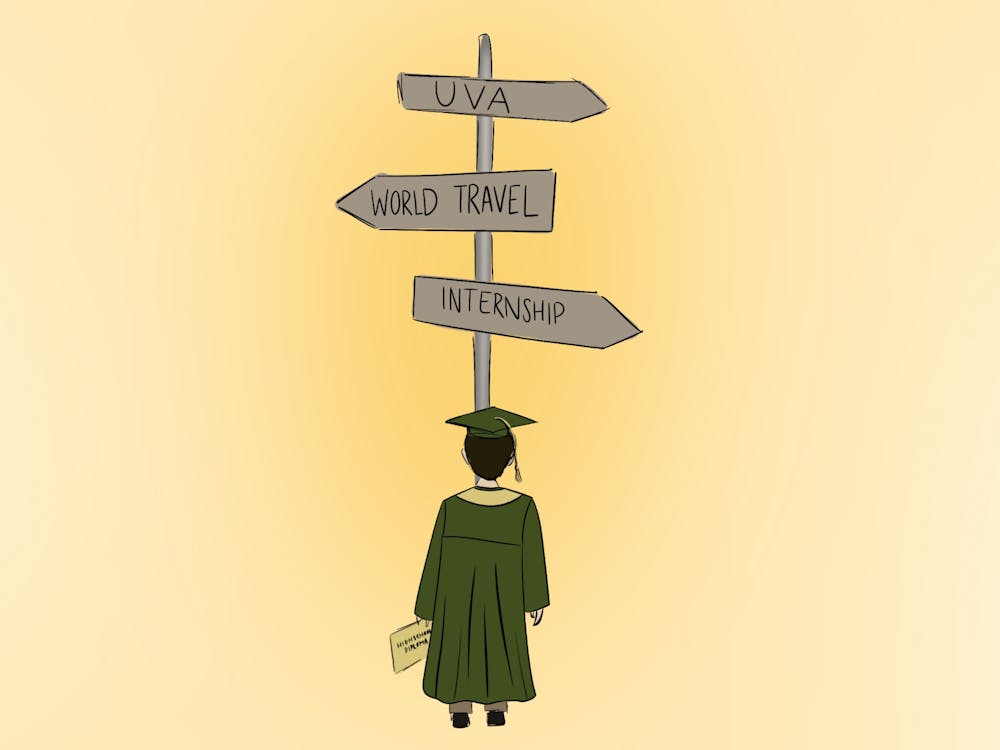"What is the essence of pig?" Virginia farmer Joel Salatin asked an audience of about 200 University students and Charlottesville residents last Thursday.
Dubbed "high priest of the pasture" by The New York Times, Salatin said life for his pigs is a "Hog Heaven." His 550-acre farm, Polyface, Inc., is like an animal sanctuary, he said, created to produce high-quality pork, beef and poultry that his consumers can trust.
The first of a series of lecturers that the Center for Christian Study will host at the University this fall, Salatin discussed the importance of buying organic, locally grown foods.
As he describes in his latest book, "Holy Cows and Hog Heaven," Salatin believes that the journey "from farm to fork" is a sacred one. Beginning the lecture with a quote from the Book of Genesis, he said the road to success in the agricultural world is rooted in Christianity. The reflection of Christian values onto the land and the happiness of the animals is one of the main focuses of Polyface, Inc., Salatin said.
A self-described "Christian-libertarian-environmentalist-lunatic-beyond-organic farmer," Salatin promotes six principles he believes every farmer should follow: order, forgiveness, peace, relationships, honesty, humility and healing. These principles develop a peaceful, beautiful environment and a food system consumers can appreciate.
"I'm in the healing industry," Salatin said. In his opinion, healing is one of the most important and enjoyable aspects of farming, meant to nurture the land and livestock with the utmost care and respect. His ultimate goal is not to increase productivity and efficiency, but to "make an animal sanctuary."
Salatin does not give his cows any hormones, antibiotics or nutritional supplements. Animals raised on crowded and unsanitary farms require intensive doses of antibiotics to reduce their stress, Salatin said. Cows, in particular, have become more virulent and dangerous to human consumers, he noted, citing the effects of mad cow disease.
The incorporation of these principles has given his business great success. Salatin has been profiled by ABC World News and mentioned in both The Washington Post and The New York Times. Polyface Farms has been featured in Smithsonian, National Geographic and Gourmet magazines. His farm even has local significance: It supplies the pork for Charlottesville's Chipotle.
Since 1996, Salatin has written six books on his own, including "You Can Farm," "Salad Bar Beef" and "Everything I Want to Do is Illegal: War Stories from the Local Food Front."
"The whole food process should be aesthetically and romantically magnetic, and sensually enjoyable," because we are "intimate with our food," Salatin noted, emphasizing that he believes food should be prepared with care and delivered fresh, free of toxins and chemicals.
"There is a respectful, righteous way and an evil way to produce - which one are we feeding?" Salatin asked.
Salatin's innovative agricultural techniques and unique practices earned him the prestigious Heinz Award this year for "creating alternative, environmentally-friendly farming techniques, spawning a movement toward local, sustainable agriculture that has been replicated by family farms around the country." The award is given out annually to five individuals in honor of the late Sen. John Heinz, whose work partially focused on environmental issues, but 10 recipients were chosen this year for the award's 15th anniversary.
Salatin said he was "in shock but so grateful" to be a recipient and plans to spend the award's $100,000 prize locally. "It's just great when you've been marginalized as a lunatic for so long," he added.
Lunatic or not, Charlottesville resident Kate O'Brien was particularly interested in what Salatin had to say.
"I'm paying attention to food, as is everyone right now," she said, adding that she came to the event because she is "fascinated and disturbed at the changes made in our culture as to foods we eat and the possible link to obesity."
2009 University alumna Simone Wojtaszek, a self-proclaimed foodie, came to Salatin's speech to "become educated and bring his perspective into the industry that he's trying to reform."\n"[Salatin] is a hero of mine," she added. "Once you're interested in food, you become interested in farming."
Albemarle resident John Coles, who contributes to the weekly Farmer's Market, also noted that the trend of buying organic, locally grown foods is gaining hold, especially among young people. In fact, already this year, he said he has never seen more University students at the market each Saturday.
It may be odd to some people that Coles - who has known Salatin for more than 30 years through the Virginia Association of Biological Farmers - came to the event, but Coles was not fazed.
"I never get tired of hearing him," he said.




